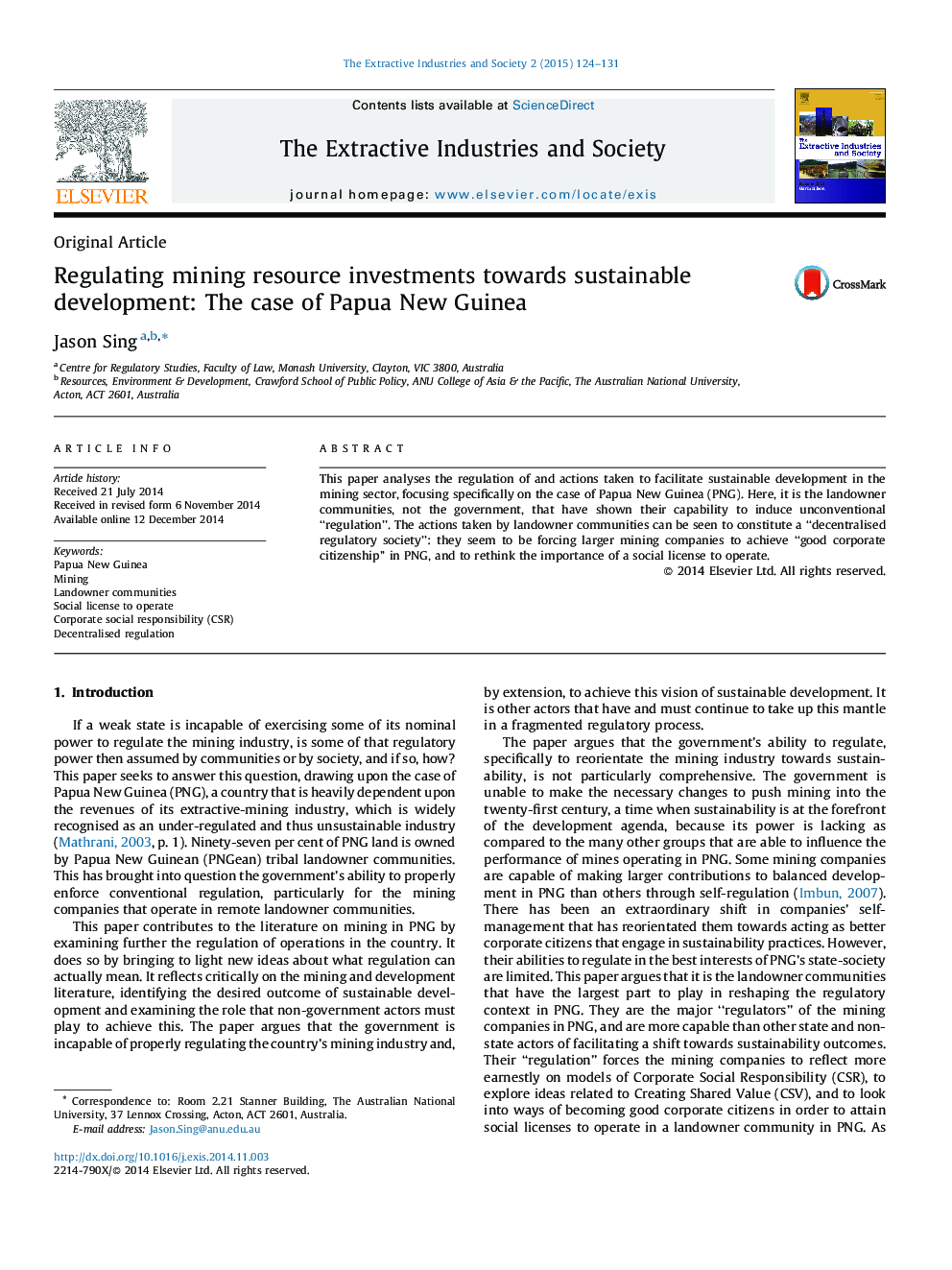| Article ID | Journal | Published Year | Pages | File Type |
|---|---|---|---|---|
| 1047524 | The Extractive Industries and Society | 2015 | 8 Pages |
•Ninety-seven per cent of land in Papua New Guinea is owned by landowner communities.•Landowner communities force “unconventional regulation” on the state and companies.•“Regulation” is induced where a companies' social license to operate has broken down.•They push companies to Corporate Social Responsibility and Creating Shared Value.•This “regulation” is accompanied by the landowner communities' social disintegration.
This paper analyses the regulation of and actions taken to facilitate sustainable development in the mining sector, focusing specifically on the case of Papua New Guinea (PNG). Here, it is the landowner communities, not the government, that have shown their capability to induce unconventional “regulation”. The actions taken by landowner communities can be seen to constitute a “decentralised regulatory society”: they seem to be forcing larger mining companies to achieve “good corporate citizenship” in PNG, and to rethink the importance of a social license to operate.
